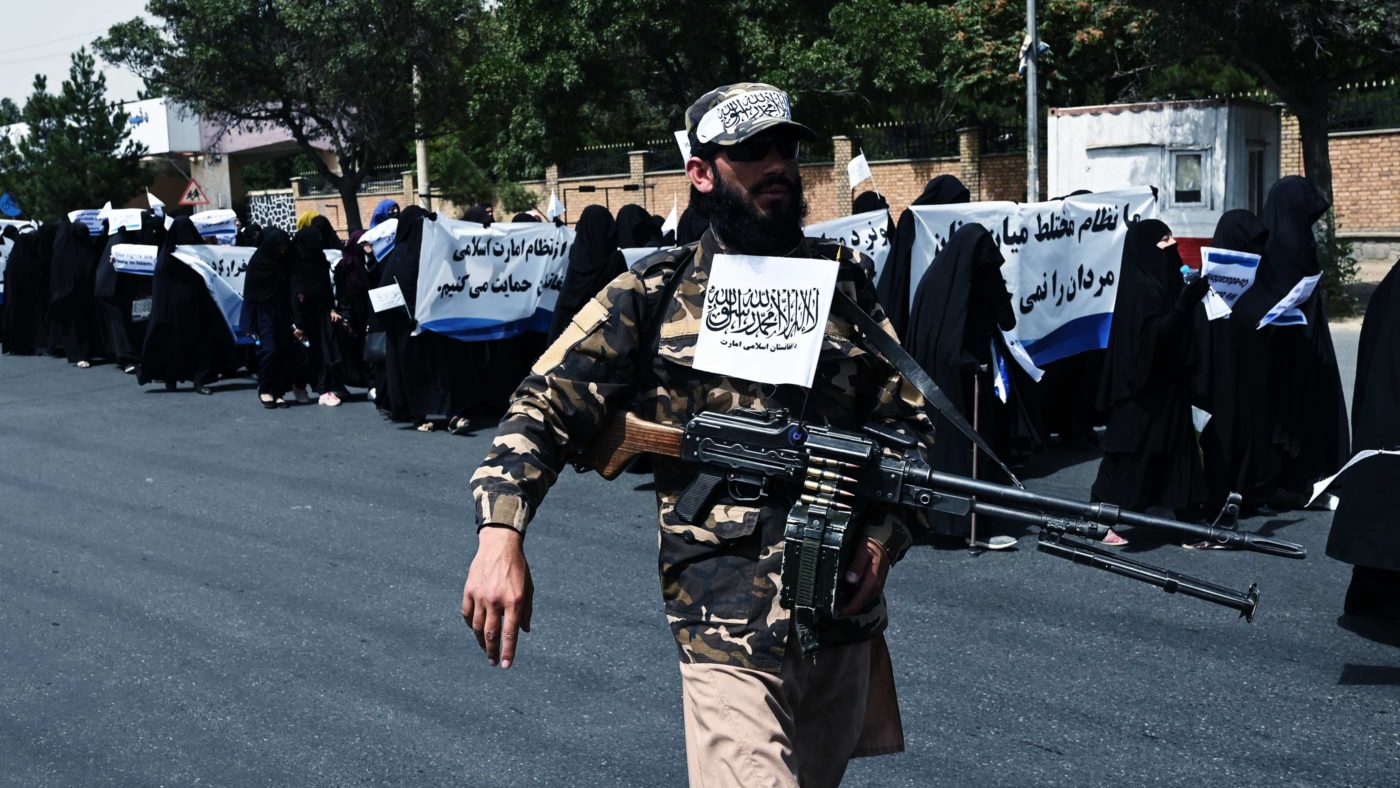With Afghanistan and the 9/11 anniversary dominating recent news, and early indications of al-Qaeda regrouping, attention has understandably settled once again on the Islamist ideology that still represents such a menace to our way of life. Indeed, Tony Blair recently warned that Islamism remains a “first-order security threat to the West”.
Those of us who work in counter-terrorism unequivocally separate the politics of Islamism from the religion of Islam, but the role of ideology in a person’s radicalisation continues to divide experts.
Some argue that ideology has lost its relevance. Instead, they see radicalisation as representative of a steady move in society towards legitimising violence in pursuit of utopian ideals. This argument has some merit. If a society fails to fulfil people’s expectations, then perhaps civil unrest and violence gain legitimacy for those impatient with the current system. Terrorist themselves have justified their actions in these terms, but such frustrations are common the world over and almost no one would contemplate murdering children at a concert or detonating a bomb on a crowded train.
Other experts say ideology remains paramount. They point to the tens of thousands of ISIS recruits who travelled to a warzone to join an organisation committed to brutal, theocratic totalitarianism. Similarly, extreme right-wing accelerationism attracts a large online following, despite its commitment white supremacy and destabilising society through rape, paedophilia and murder.
The truth lies somewhere between these two points of view. For many would-be extremists there will be underlying grievances that increase susceptibility to radicalisation, but ideology is the driving force that gives them purpose. Similarly, the lives of terrorists are often littered with social and psychological fractures that make extremist narratives a compelling way to make sense of life’s injustices. Whatever their individual trajectories, ideology gives a twisted moral clarity to their cause and while extreme right-wing violence is on the rise, Islamist terrorism remains the UK’s leading threat, as it has done since Bin Laden’s fatwa against the West.
Much of al-Qaeda’s terrorism was planned from within Taliban-controlled Afghanistan, which harboured the terrorists and their training camps. Given their record, we are right to be asking what the Taliban takeover of Afghanistan means for global terror. This quote by Maulawi Hafiz Mohibullah Muktaz, a religious leader and fighter from Kandahar, offers no reassurance:
“….here is proof of the power of faith and God and jihad. On the back of victory, I hope we can use Bagram as a place to spread jihad further into the region and Muslim world.”
We typically view the Islamist threat through a Western lens: what does it mean for us, when is the next attack and how can we resist the increasingly confident Islamist advances of ISIS, al-Qaeda, al-Shabaab and other terrorist organisations?
This is an understandable but overly narrow perspective. As is often pointed out, far more Muslims are killed in terror attacks than non-Muslims, and Islamic countries will be the first to suffer from any campaign to ‘spread jihad further into the region’. That means we should join-up our thinking with non-Western partners to collectively consign Islamist extremism to the margins. The answer must lie with moderate nations such as Jordan, Morocco and the UAE who reject Islamism’s attempts to consume Islam.
There are encouraging examples too. A few years ago, for instance, a Jordanian colleague told me how he protected his youth centres from the grip of Abu Musab al-Zarqawi, who went on to become leader of al-Qaeda in Iraq. Former al-Qaeda propagandist Jessie Morton has spoken of his ‘deradicalisation’ in Morocco, facilitated by an environment in which Muslims embraced their faith as a religion and not a political ideology.
As Anne-Elisabeth Moutet noted in a recent CapX piece, the UAE’s fight against political Islam – in particular the Muslim Brotherhood – is arguably the highest-profile in the Muslim world. It proactively seeks to reject Islamism by projecting an image of a tolerant nation willing to reach out to secular allies, including Israel. Abu Dhabi also plays host to the Hedayah Centre, a world-leading organisation equipping people with the tools to counter extremist narratives.
Where, then, is the renewed Islamist threat emanating from?
Ali Soufan, a former FBI Special Agent and author of The Black Banners: The Inside Story of 9/11 and the War Against Al-Qaeda, refers to an ‘arc of instability’ from North Africa to South Asia, with significant territory in Libya, Somalia, Yemen, Syria, Lebanon and Iraq governed by non-state Islamist militias. All of these groups share a deep hatred of the West and its allies, and many have fallen under the influence of the Iranian regime.
The newly announced AUSUK pact shows that Western powers are still capable of acting in concert to tackle specific threats. But tackling terrorism is not just about hard power – we cannot hope to defeat extremism without tackling the ideologies that lie behind it. The 20 years since 9/11 have taught us that Western apathy and timidity only emboldens Islamism. If we cannot marshal the political courage to reject this cynical ideology, working with Muslim partners in the Middle East, the next 20 years could be every bit as difficult as the last two decades.
Click here to subscribe to our daily briefing – the best pieces from CapX and across the web.
CapX depends on the generosity of its readers. If you value what we do, please consider making a donation.


